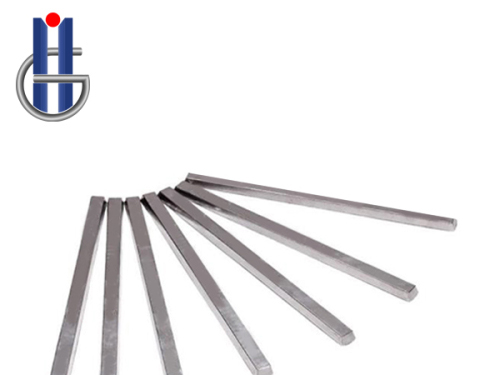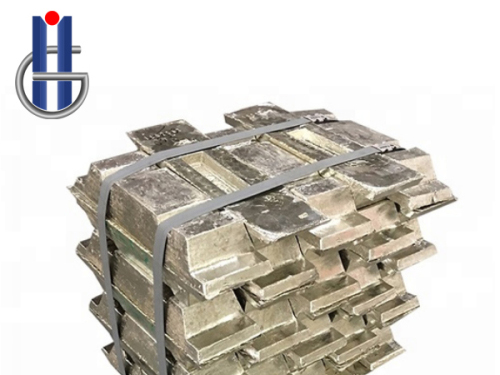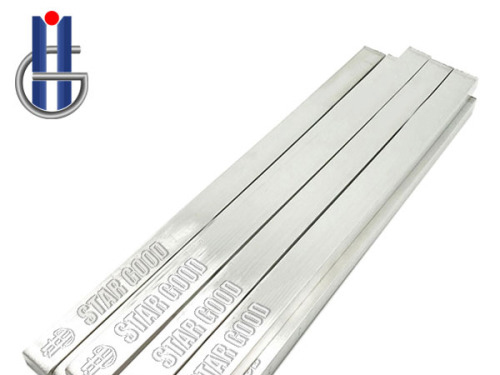Introduction:
Lead-tin bars, a traditional alloy crafted by combining lead and tin in varying proportions, have served as essential materials in numerous industries for centuries. The unique properties of this alloy, such as low melting points and malleability, make
lead-tin bars valuable in diverse applications. This article explores the historical significance, properties, applications, and considerations associated with lead-tin bars.
Historical Significance:
The combination of lead and tin has a rich historical background, dating back to ancient civilizations. This alloy, commonly known as solder, gained prominence for its ability to create durable and reliable joints in metals. Over time, lead-tin bars became synonymous with craftsmanship, playing a vital role in the creation of intricate metalwork, stained glass, and electronic components.
Properties of Lead-Tin Bars:
Low Melting Points: One of the distinctive features of lead-tin bars is their low melting points. The alloy can be easily melted and applied as a filler material in soldering processes, creating strong and conductive bonds between metal surfaces.
Malleability: Lead-tin bars are highly malleable, allowing them to conform to various shapes during the soldering process. This property makes the alloy suitable for intricate metalwork, circuit board assembly, and other applications requiring precise connections.
Corrosion Resistance: Lead-tin bars exhibit good corrosion resistance, contributing to the longevity of soldered joints. This property is crucial in applications where exposure to environmental elements could compromise the integrity of metal connections.
Applications Across Industries:
Electronics Manufacturing: Lead-tin bars are extensively used in the electronics industry for soldering components onto printed circuit boards (PCBs). The alloy's low melting point ensures that sensitive electronic components are not subjected to excessive heat during the soldering process.
Metalworking and Craftsmanship: Artisans and metalworkers utilize lead-tin bars for creating ornamental metalwork, stained glass, and other decorative items. The alloy's malleability allows for intricate designs and precise detailing in various artistic applications.
Plumbing and Pipe Fittings: Lead-tin solder is commonly employed in plumbing applications to join pipes and fittings. The low melting point and durability of the alloy contribute to secure and leak-resistant connections in plumbing systems.
Considerations and Environmental Impact:
While lead-tin bars have been widely used, it's essential to note that lead is a toxic material. In recent years, there has been a shift towards lead-free solder alloys to mitigate health and environmental concerns associated with lead exposure. Regulatory measures and industry standards are pushing for the adoption of alternative soldering materials.
Future Trends and Innovations:
The future of soldering materials involves a transition towards lead-free alloys. Researchers are exploring alternative compositions that maintain the desirable properties of lead-tin bars while eliminating the environmental and health risks associated with lead.
Conclusion:
Lead-tin bars stand as a testament to the historical significance and versatility of alloys in various industries. While their traditional applications remain prevalent, ongoing developments in materials science aim to create safer and more sustainable alternatives. As industries evolve, the role of lead-tin bars in craftsmanship, electronics, and plumbing will continue to adapt to meet the changing landscape of materials and technology.



 Pure Tin Ingot: Essential Material for Diverse Industrial Applications
Pure Tin Ingot: Essential Material for Diverse Industrial Applications
 Unlocking the Potential of Pure Tin Bars: Essential Components for Diverse Industries
Unlocking the Potential of Pure Tin Bars: Essential Components for Diverse Industries
 Lead Bar for Sale: Uses, Specifications, and Buying Considerations
Lead Bar for Sale: Uses, Specifications, and Buying Considerations
 Exploring the Versatile World of Tin Wire Products: A Comprehensive Overview
Exploring the Versatile World of Tin Wire Products: A Comprehensive Overview